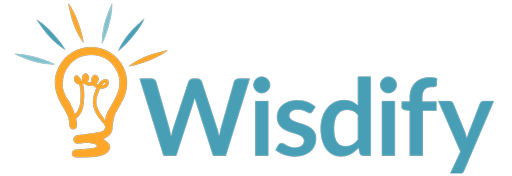You got to the interview, congrats! Now comes the hard part. Coming well prepared to your interview will put you miles ahead of other candidates. A well-qualified candidate who doesn’t sufficiently prepare for the interview will not receive a job offer. Don’t let that be you. Take the following steps as soon as you’re invited to interview so you can nail the interview and get the job.
Research the company and position
We call this “showing up” and is one of the most important things you MUST do. How much or how little you know about the job will quickly become apparent during your interview.
A candidate that has done deep research will impress the interviewer with their knowledge and dedication. As a bonus, it’ll give you a clearer idea of how well you would like to work at the company. Find out as much as you can about the company, position, and the interviewer (without being creepy). This will drastically set you apart from the other candidates.
Analyze the job posting so that you know exactly what the employer is looking for in an ideal candidate – and show that it’s you. The better you know the position the better you can highlight the experiences, skills, and interests that will best qualify you for it.
Review the company’s website, LinkedIn, and social media to learn their history, services, products, mission, vision, and current events. Use sites such as Glassdoor and Vault to learn more about the company, its industry, its culture, what its employees have to say, and interview questions other candidates were asked.
This might sound like a lot of hard work and that’s because it is!
Have an informational interview
Ideally, you should have either a 15-20 minute phone call or a quick coffee with a former employee of the company. If you don’t have a contact, you can easily find an alumnus who works there. You can also just cold connect with someone on LinkedIn.
Regardless of how you connect, tell the person you are interviewing at the company and that you would like to chat for 15-20 minutes about the company and their experience. Offer to either have a phone call or take them out to coffee at a convenient time for them. We guarantee someone will be willing to chat with you.
These contacts can give you valuable insights about the company and position and potentially put in a good word for you and/or connect you with other people. Use every part of your network to find connections: your alumni database, LinkedIn profile, professors, family, and friends. Attend any information sessions the company hosts and be sure to get contacts.
Don’t be afraid to reach out. You will find that most alumni and other connections are more than happy to speak with you and share advice, even if they don’t personally know you.
Be excited
If you don’t show excitement about the interviewer, the job, or the company, the interviewer won’t be excited about you. Excitement doesn’t mean you’re smiling non-stop and jumping up and down with joy. It means you’re engaged, interested, and asking thoughtful questions. It means you’re fully prepared and excited about the interview.
Practice interviewing
Interviewing is a skill that improves with practice. Taking time to conduct mock interviews will improve your confidence, body language, and ability to answer the interviewer’s questions effectively. Do not memorize your responses – it will make you sound robotic. Instead, practice responding so you will be able to articulate your most important points while still being conversational during the actual interview.
Practice with a friend or one of your college’s career counselors to get honest, third party feedback. Act as if these are the real interview and practice professional etiquette and body language. Start with a firm handshake. Make eye contact and have an attentive posture throughout the interview. Answer confidently and succinctly. Avoid filling pauses with “um” or “like.”
Focus your interview practice on questions that will likely be asked in your job interview, such as these common job interview questions. Also, do some research on any industry-specific questions that may come up.
Prepare questions to ask the interviewer
Simply put, if you don’t’ ask thoughtful questions at the end of the interview, you will not get the job. Asking thoughtful questions at the end of the interview further demonstrates your interest and preparation. Ask your prepared questions as well as any that arise during the interview.
Your questions shouldn’t be ones you could answer with a bit of research or be about salary/benefits. Below are some example questions that will show your interest while providing you with better insight into whether you want this position:
- How have past employees been successful in this position?
- What is the typical career path for someone in this position?
- What training or professional development opportunities are provided here?
- How would you describe the company’s culture?
- What are some of your favorite aspects about the company? Least favorite?
- Is there anything else I can provide to help you make the decision?
Be sure to ask about next steps so that you know how and when you will hear back about the position.
Dress professionally
You must be professional in order to be seriously considered for a position, and a big part of that is your appearance. Here are more details on how to dress professionally for an interview.
Pick out what you are going to wear and try it on beforehand. You don’t want to find out that you have a missing button or the weight you gained over the holidays made your suit too snug as you are heading to your interview. Have one or two go-to interview outfits that you feel confident, comfortable, and professional in so that you don’t have to scramble to find something.
If your interview is over the phone, prepare by finding a quiet space where you can talk comfortably and without being interrupted. Check your Wi-Fi and phone signal there beforehand. Your college or alumni career center may be able to provide you with a room if you are having trouble finding one.
Gather what you need to bring
Bring a portfolio with copies of your resume, a notepad and pen, and (when relevant) work samples. Your portfolio will also give you a place to keep the business cards you collect from your interviewers and a notepad and pen. Don’t take notes throughout the interview, but do make sure you jot down any important names or information you will need to know later. You may want to write down the names of your interviewers and questions you want to ask them so you can skim them quickly if you need to.
Take time to think of anything else you may need – such as a form of identification to go through building security, an umbrella, cough drops, mints, and chapstick – and pack them into your purse or briefcase so that you do not look cluttered.
Plan for a smooth arrival
Confirm the contact information and arrival procedures prior to the interview. Make sure you know how to get there and plan to arrive at least 15-20 minutes early after factoring in traffic, parking, and getting lost. Although you arrived early, do NOT request to speak to the interviewer at that point. They are busy and might have other obligations. Instead, wait in your car or the lobby until about 5 minutes before the start time.
Arriving early will make a good impression, help you stay calm, and give you time to freshen up or review your notes.
TURN YOUR PHONE OFF and stow it away.
Take a deep breath and go into the interview feeling prepared and confident.



